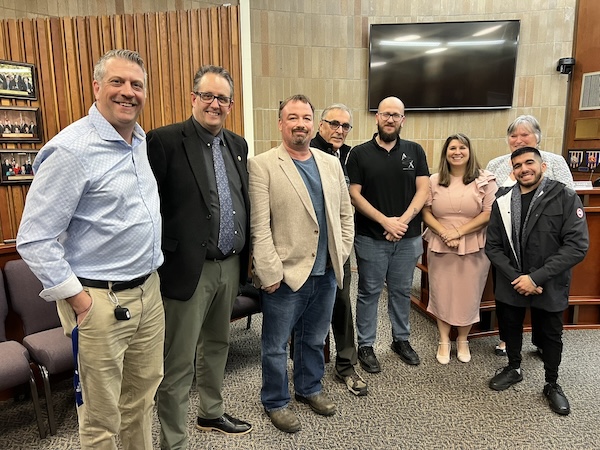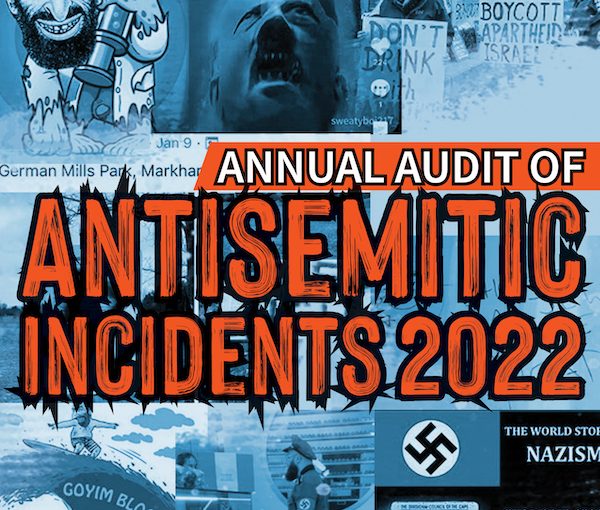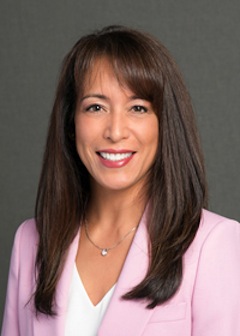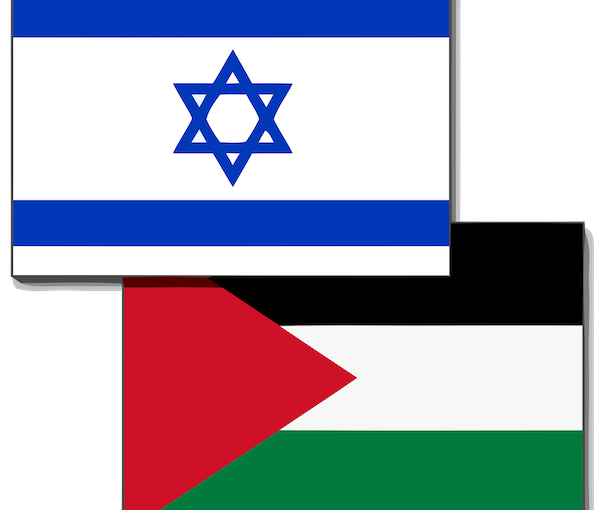The federal government’s designated point person on antisemitism raised alarm bells for Canadians following attacks on Jews last month in Amsterdam.
Deborah Lyons, Canada’s special envoy on preserving Holocaust remembrance and combatting antisemitism, spoke to the Vancouver Jewish community Nov. 12, in a special online conversation with Ezra Shanken, chief executive officer of the Jewish Federation of Greater Vancouver.
Lana Marks Pulver, chair of the Jewish Federation, explained that the briefing was organized after the attacks on Israeli football fans in Amsterdam Nov. 7.
The antisemitism problem is both local and global, said Lyons, but Canada has a particular problem.
“We were one of the first countries to demonstrate on the streets,” she said. “On our university campuses, unfortunately, certainly online and in some of our other institutions, [there has been] a level of antisemitism that we had never, ever expected to see in Canada.”
People were phoning her from abroad asking what’s happening to Canada. This is a country with a strong democracy and rule of law, she said, and yet 70% of all religiously motivated hate crimes target the Jewish community, which makes up 1% of the population.
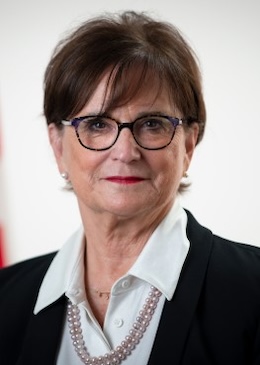
“We need leaders stepping up and a full court press to address the challenges in front of us,” she said. “This is not just about our Jewish community. This is about what kind of country we want as Canadians. I consider this a crisis that we are in that really needs a crisis response.”
Oct. 7, 2023, “shook the world,” Lyons said. “Frankly, what happened in Amsterdam, on another level, has also shaken us. I think we were hoping that, in this past year, since October 2023, in our own countries, we were putting in place some remedies, some actions to address the antisemitism that we were seeing rising in our country and in so many other, particularly Western, countries. But I think what happened in Amsterdam has been another shockwave that I think causes all of us to say we need to double down.”
Canadians may be complacent, Lyons suggested, because we believe in our historical, if possibly mythological, tolerance.
“We’ve got an incredible country, solid governments and good rule of law,” she said. “I have lived in countries that can’t even come close to that description. And we are on the island of North America. We’ve had a pretty good ride. I think that maybe we weren’t paying enough attention to some of the ills within our society.”
When a society or its economy is under stress, antisemitism inevitably rises, said Lyons.
“We already had, before October 2023, an increase in antisemitism in Canada,” she said. “Where we are now, after October 2023, is a level of antisemitism that is completely unprecedented in our country. What do we do with that? Well, clearly, we fight it. But we also have to take this as an opportunity and say, alright, some of that was lying beneath the surface. It’s now very much exposed. We have the opportunity. We need to turn this into a catharsis. We need to take this moment when all of this is exposed, when no one can deny that antisemitism exists, when no one can deny that it requires intensive effort to combat it and that it requires a systemic approach.”
She congratulated British Columbia for committing to mandatory Holocaust education, but that is a step in the right direction, not an end, she said.
“We need to do work on not just Holocaust remembrance but on antisemitism itself and making sure that teachers and school boards and faculty actually have the right perspective as they are trying to help the children understand what the Holocaust means, not just historically but in terms of today,” she said.
Those combatting antisemitism need to be doing more work with law enforcement, she said, noting that Vancouver Police and RCMP in British Columbia recently underwent training with Friends of the Simon Wiesenthal Centre. Prosecutors also need to be empowered, she added.
“We need to do work on social media and we’ve got a campaign underway there,” said Lyons, noting that the federal government is working on an online harms bill, which could strengthen data collection, among other steps.
Noting positive signs, Lyons cited information that, “by far and away,” a majority of Canadians support the Jewish community and support Israel’s right to exist.
Exceptions emerge among younger Canadians, she said, “our 18-to-24-year-olds, kids who might not have adequate knowledge of the Holocaust, have a tendency to be disposed toward antisemitism.”
Lyons recently met with the president of the University of British Columbia and the chancellor of Simon Fraser University.
“I think university presidents and university administrations struggled after Oct. 7 in a way that many of us struggled,” she said. “It was almost a shock to see the reaction on a number of the campuses. I think we saw that with other leaders in other segments of society, that people almost needed time to get their bearings, to try to figure out what was the right response. We all want freedom of expression, we all want freedom of speech, we all want our young people to be … debating new ideas and pushing the envelope. But it has to be done in a respectful environment. It has to be done with a certain dignity and sense of acknowledgment of the other’s point of view.”
Among the shortcomings that emerged in the past year, according to Lyons, was an absence of recourse to deal with concerns from Jewish students.
“What we found was there was not the recourse in place, the systems in place, for the university administrations to actually follow up on the concerns of our students in what I would consider to be a substantive way,” she said. “I think there are better systems being put in place now to make sure that every student who has a concern or feels an unease can make their feelings known and can have that responded to substantively and with respect. I think also the presidents in many cases were challenged with their own codes of conduct and how they were to be implemented. I think that, over the last several months, particularly over the summer when they had a bit of a pause, there’s been this understanding that these codes of conduct really do need to be administered.”
Lyons is one of about 35 national envoys addressing antisemitism worldwide.
“We work together to share experiences in our countries and also to identify some remedies,” she said. “We’ve just recently published, this past summer, the global guidelines for fighting antisemitism.”
Lyons’ office and the broader federal government recently released the Canadian Handbook on the IHRA Working Definition of Antisemitism, which she said is a vital tool. It is based on an earlier European Union document and the International Holocaust Remembrance Alliance (IHRA) Working Definition of Antisemitism. She urges Jewish people, but especially potential allies, to use it.
“Learn about antisemitism. Try to understand it. Try to understand what’s happening in our country,” she said.
A visit to the Vancouver Holocaust Education Centre is a place to start for people who seek to be allies to Jews, she said. Then, she urged people to step outside their bubbles.
“Get to know your Jewish neighbours and stand up if you see something happening that you think isn’t right,” said Lyons.
Shanken noted that Lyons is not Jewish and asked how she ended up in this role.
“I grew up in rural, northern New Brunswick and community mattered,” said Lyons. “And people mattered. Your neighbours mattered. Looking after one another mattered.”
She also remembered as a child hearing about the Holocaust.
“I can remember how it marked me, how I could not believe that the humanity that I belonged to had created, planned and carried out such horrors over such a long period of time,” she said. “So, years later when, as a diplomat, I was leaving one post and getting ready to go to another and I got the call that I could go to Israel [as ambassador, 2016-2020], I jumped at the chance, because I thought, what an incredible opportunity to really engage in a country that I’ve always been fascinated by and with a people that I have huge admiration for. My time in Israel, I think, even deepened my experience as, I suppose, an ally.”

